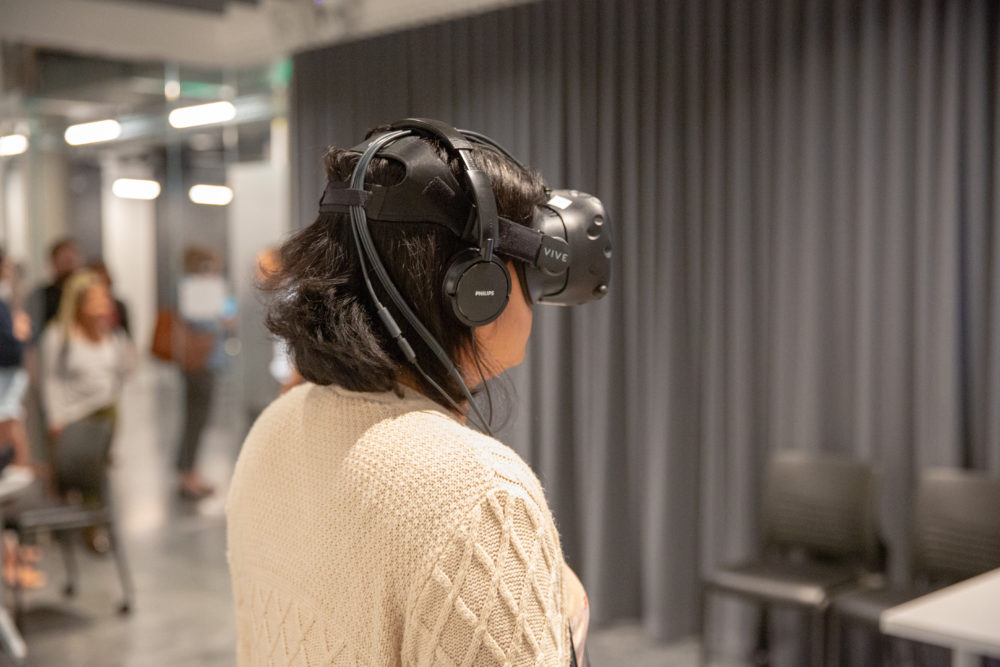
Reflection by Nick Abbott ’20, history and international relations double major, and Thomas Duncan ’19, history major.
The LMU History Department and Bellarmine College of Liberal Arts proudly hosted Step Into The Story: What Will Virtual Reality Mean For News, Entertainment, Art, and Democracy? on September 17, 2018, at LMU’s new Playa Vista campus. The event featured journalist and activist Nonny de la Peña, and her keynote address highlighted the importance of virtual reality, or VR, in storytelling. De la Peña, founder and CEO of Emblematic Group, covered the history of VR as an artistic and technical medium, describing her efforts to break into an industry full of double standards and a lack of funding for women. Beginning with her own self-constructed prototype goggles from homemade parts and small-team efforts, De la Peña eventually created Emblematic Group, a cutting-edge VR company that has become a leading player in the industry.
In her keynote address, De la Peña spoke about her focus on education and activism through VR technology. Her work is often deeply emotional and personal, bringing viewers into an intimate experience with the subjects of her stories. The stories and topics she highlights include bystanders to police brutality, solitary confinement and its effect on prisoners, hunger and homelessness, LGBTQ rights, and historical recreations of colonial America. The Emblematic Group also offers entertaining exploratory experiences such as simulations of racecar pit crews and Arctic exploration. De la Peña collaborates with Academy Award-winning filmmakers and producers to bring VR into mainstream media, activism and entertainment.
Amy Woodson-Boulton from the History Department and Evelyn McDonnell from the English Department moderated the Q&A session following De la Peña’s talk. The panelists and audience asked many questions about the implications of VR in the political world and as a medium for cultural institutions. Although VR is still in a relatively early stage, many attendees could envision the medium being used to spread political propaganda. VR also allows the viewer to ‘travel’ to new places and experiences without having to actually leave the room, including to museums and exhibits. While VR breaks down barriers to access for those who cannot afford to travel, it may also pull these experiences out of context and could dramatically change how people experience the past in the future.
In addition to the keynote address, Step Into the Story also offered attendees to use VR to journey through the Arctic to discover the burgeoning causes of global warming and glacial degradation. “Greenland Melting” was totally immersive and impressive in its use of extreme levels of detail and impactful storytelling.
De la Peña’s presentation raises new and important questions for the fields of journalism, activism, and historical study. It challenges our perceptions of entertainment and reality in a way that can hopefully grow to better immerse people in a broad spectrum of subjects and disciplines. As VR becomes cheaper for the average consumer as well as more technologically advanced, we will have to take an active role in shaping how this technology affects information sharing, storytelling, and our perceptions of the world.



